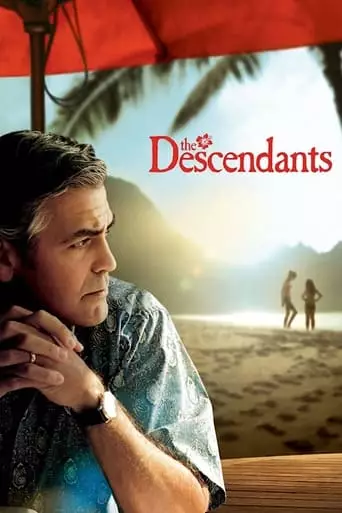A curmudgeonly instructor at a New England prep school is forced to remain on campus during Christmas break to babysit the handful of students with nowhere to go. Eventually, he […]

A curmudgeonly instructor at a New England prep school is forced to remain on campus during Christmas break to babysit the handful of students with nowhere to go. Eventually, he […]

A recently retired man embarks on a journey to his estranged daughter’s wedding, only to discover more about himself and life than he ever expected. About Schmidt (2002) is a […]

Tracy Flick is running unopposed for this year’s high school student election. But Jim McAllister has a different plan. Partly to establish a more democratic election, and partly to satisfy […]

Two middle-aged men embark on a spiritual journey through Californian wine country. One is an unpublished novelist suffering from depression, and the other is only days away from walking down […]

An aging, booze-addled father takes a trip from Montana to Nebraska with his estranged son in order to claim what he believes to be a million-dollar sweepstakes prize. Nebraska, directed […]

With his wife Elizabeth on life support after a boating accident, Hawaiian land baron Matt King takes his daughters on a trip from Oahu to Kauai to confront a young […]
Alexander Payne: The Chronicler of Human Complexity
Alexander Payne, an American filmmaker known for his sharp wit, poignant storytelling, and exploration of human imperfection, has established himself as one of the most distinctive voices in contemporary cinema. With a career spanning over three decades, Payne’s films often delve into the humor and heartbreak of ordinary lives, capturing the beauty and absurdity of the human experience.
From his early dark comedies to his critically acclaimed character studies, Payne’s work reflects a deep empathy for his characters, coupled with a satirical edge that underscores the complexity of modern life.
Early Life and Education
Alexander Payne was born on February 10, 1961, in Omaha, Nebraska, a setting that would later serve as the backdrop for many of his films. Growing up in a Greek-American family, Payne developed a love for storytelling and cinema at an early age.
He attended Stanford University, where he majored in history and Spanish literature, before pursuing a Master of Fine Arts in Film at the University of California, Los Angeles (UCLA). At UCLA, Payne honed his skills as a writer and director, creating a thesis film that garnered attention and set the stage for his professional career.
Breakthrough with Citizen Ruth and Election
Payne made his feature film debut with Citizen Ruth (1996), a dark comedy about the polarizing issue of abortion. Starring Laura Dern as a struggling addict caught between pro-life and pro-choice activists, the film showcased Payne’s ability to tackle controversial topics with humor and nuance.
His follow-up, Election (1999), marked his breakthrough. A biting satire of high school politics, the film starred Reese Witherspoon as the overachieving Tracy Flick and Matthew Broderick as her beleaguered teacher. Election was praised for its sharp writing, complex characters, and incisive commentary on ambition and morality. It earned Payne an Academy Award nomination for Best Adapted Screenplay and cemented his reputation as a filmmaker with a unique voice.
The Golden Era: About Schmidt and Sideways
About Schmidt (2002)
Payne’s next project, About Schmidt, starred Jack Nicholson as a recently retired man embarking on a road trip to find meaning in his life after the death of his wife. The film, set against the backdrop of the Midwest, is a poignant exploration of aging, regret, and self-discovery. Nicholson’s understated performance earned him widespread acclaim, and the film received two Academy Award nominations for Best Adapted Screenplay and Best Supporting Actress (Kathy Bates).
Sideways (2004)
Arguably Payne’s most celebrated work, Sideways is a dramedy about two friends (Paul Giamatti and Thomas Haden Church) embarking on a wine-tasting road trip in California’s Santa Ynez Valley. The film masterfully balances humor and melancholy, exploring themes of friendship, love, and midlife crises.
Sideways was a critical and commercial success, winning the Academy Award for Best Adapted Screenplay and earning nominations for Best Picture and Best Director. Its impact extended beyond cinema, sparking a surge in the popularity of Pinot Noir and redefining wine culture in the United States.
Later Works: Exploring New Horizons
The Descendants (2011)
Set in Hawaii, The Descendants stars George Clooney as a lawyer grappling with family turmoil after his wife falls into a coma. The film, based on Kaui Hart Hemmings’ novel, is a deeply emotional story about loss, forgiveness, and the complexities of family dynamics. Payne won his second Academy Award for Best Adapted Screenplay, and the film was nominated for five Oscars, including Best Picture and Best Director.
Nebraska (2013)
Payne returned to his Midwestern roots with Nebraska, a black-and-white road film about an aging father (Bruce Dern) and his son (Will Forte) traveling to claim a dubious sweepstakes prize. The film’s stark visuals and understated performances reflect Payne’s signature style, blending humor with a deep sense of humanity. Dern’s performance earned him an Academy Award nomination, and the film received six nominations overall, including Best Picture and Best Director.
Downsizing (2017)
In Downsizing, Payne ventured into the realm of science fiction with a satirical premise: a world where people shrink themselves to reduce their environmental impact and live more luxuriously. Starring Matt Damon, the film received mixed reviews but was praised for its ambition and thought-provoking themes.
Themes and Style
Alexander Payne’s films are characterized by their keen observation of human behavior, nuanced character development, and a mix of humor and pathos. He often focuses on flawed, relatable characters navigating life’s challenges, whether it’s a midlife crisis, familial conflict, or the search for purpose.
His visual style is understated, favoring naturalistic cinematography that complements his character-driven narratives. Payne’s use of regional settings, particularly the Midwest, adds authenticity and depth to his storytelling.
Legacy and Influence
With multiple Academy Awards and a string of critically acclaimed films, Alexander Payne has solidified his place as one of America’s foremost directors. His ability to find humor and poignancy in everyday life has resonated with audiences worldwide, making his work both accessible and profoundly moving.
Payne’s films are a testament to the power of storytelling that embraces humanity in all its imperfections. By shining a light on the ordinary, he reveals the extraordinary, offering audiences stories that are as entertaining as they are deeply resonant.